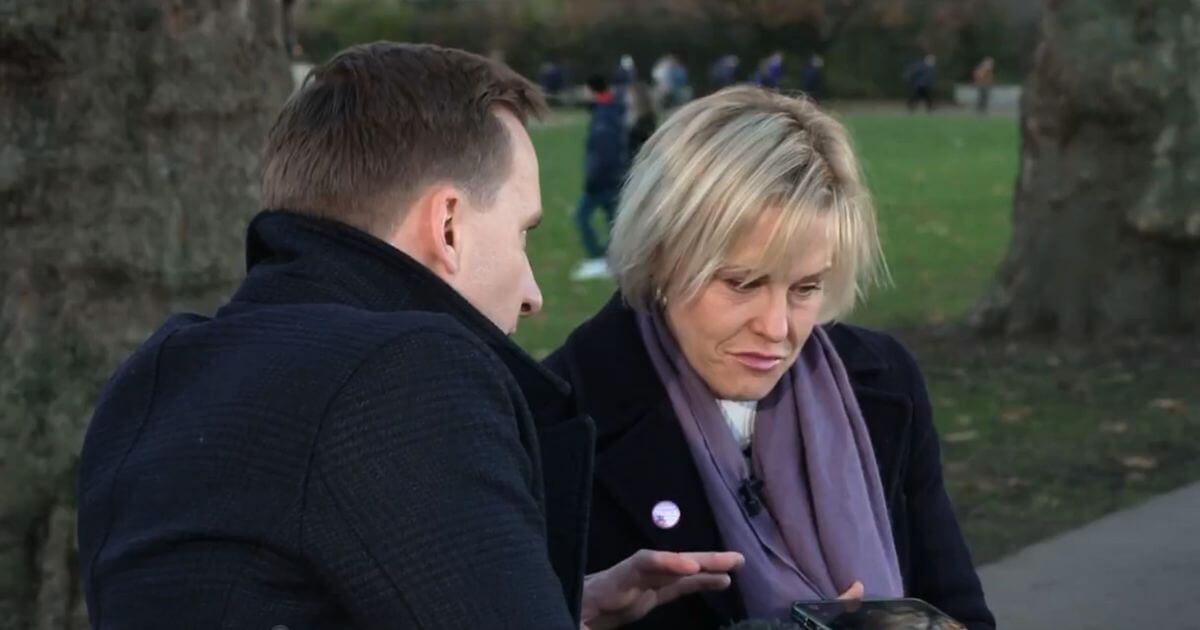Esther Rantzen and her daughter have mocked the idea of people being coerced into assisted suicide as the assisted suicide Bill passes Second Reading and disability rights activists fear the possibility of being coerced into assisted suicide.
On Friday, after MPs voted through Kim Leadbeater’s Terminally Ill Adults (End of Life) Bill at Second Reading, during an interview with journalist Paul Brand, Esther Rantzen, former TV personality and assisted suicide activist, discussed the passing of the Bill with her daughter Rebecca Wilcox.
During the exchange, Brand asked how Rantzen was feeling about the passage of the Bill to the next parliamentary stage.
Rantzen said “I’ve gotta stay alive a bit longer hadn’t I? Quite a responsibility”. In reply, her daughter said “Can I point out that you don’t have to stay alive for politics but you do have to stay alive for your family”.
Rantzen then joked “Well there you are, that’s coercion you see”, at which point Wilcox began laughing, as Rantzen continued, “That’s what people are frightened of. Families coercing people to stay alive”.
However, just hours before Rantzen and Wilcox chose to make light of the potential for coercion, Kim Leadbeater, during the debate on her Bill, suggested that the true source of coercion arose from family members who tried to prevent someone from choosing assisted suicide.
In the debate, Independent MP Richard Burgon made an intervention about the possibility of people being coerced into ending their lives and his concerns about people ending their lives over fear of being a burden. In response, Leadbeater said “Evidence from other jurisdictions shows clearly that coercion tends to happen the other way; what tends to happen is that families try to prevent the person from making the choice of an assisted death”.
Similarly, Labour MP Cat Eccles, who voted in favour of the assisted suicide Bill at Second Reading, has also suggested that in those jurisdictions in which assisted suicide is legal, coercion “actually happens with relatives trying to talk loved ones out of having an assisted death”
Both Rantzen and Wilcox have been campaigning for a change in law on assisted suicide, with the Prime Minister Keir Starmer making a promise to Rantzen that he would make time for a debate on assisted suicide.
Disability rights activists fear coercion into assisted suicide
Fears of coercion are very real for Dermot Devlin, founder of the disabled rights and disability blog My Way Access, who told Politics UK he is “scared” about being forced into an assisted suicide through the new Bill.
“With my increased chronic pain, respiratory failure and mobility issues, what’s to say I won’t be eligible for a death sentence, and pushed into it?”, he said.
Disability rights activist George Fielding BEM echoed Devlin and Carr’s concerns, stating that legalising assisted suicide would “lead to coercion and pressure on disabled individuals to end their lives prematurely”. He said “In a society that often devalues and marginalises disabled people, it is not difficult to imagine scenarios where individuals feel like they are a burden to their families or caregivers. The mere existence of legally assisted suicide could send the message that ending one’s life is an acceptable solution to these feelings rather than addressing the underlying societal attitudes and lack of support”.
Assisted suicide to avoid ‘being a burden’
While Leadbeater, Eccles, Rantzen and Wilcox seem to be concerned about the possibility of “coercion” to stay alive, during the debate on Friday (29 November), Mother of the House Diane Abbott, Danny Kruger, Rachael Maskell, Dr Ben Spencer, Tim Farron, Anna Dixon and Carla Lockhart all discussed the potential for coercion into assisted suicide that this Bill creates.
Kruger, Farron and Maskell made particular reference to the problem of “self-coercion”, an issue that the Bill does not even attempt to address, where a person ends their life or is tempted to end their life, in order to avoid being a burden.
Of the thousands of people who have ended their lives by assisted suicide in Oregon since 1997, 47.1% listed “Burden on family, friends/caregivers” among their end-of-life concerns.
Tim Farron said “[T]here is the risk of self-coercion. Many of us will have heard older relatives utter words similar to, ‘I am a burden to you. You would be better off without me.’ We all know reasonably instinctively that people will present it as making a sovereign choice, but it will be a choice born out of coercion. Unless there is a clause in the Bill that I have missed to employ mind readers, no amount of doctors, safeguards or bureaucratic mechanisms will prevent those who self-coerce from opting to die simply because they assume that no matter what their loved ones say, everyone would be better off if they were dead”.
Kruger referred to self-coercion, as opposed to external coercion from others such as family and the state, as the “bigger danger”.
“The Bill has nothing to say on that. Internal pressure is absolutely fine. If you feel worthless or a burden to others, if the NHS will not offer you the treatment you need, if the local authority will not make the adjustments you need to your home, if you have to wait too long for a hospital appointment, or if you want to die because you think the system has failed you, that is absolutely fine”, he said.
Labour MP Rachael Maskell made the same point saying “Intrinsic coercion is very real, not least where the law has changed—rapidly becoming an expectation, verbalised as a duty to die. In fact, not wanting to be a burden is cited as a major reason to opt for an assisted death, alongside loss of dignity, loneliness, and needing personal care, yet every day, disabled people live in this reality”.
Spokesperson for Right To Life UK, Catherine Robinson, said “It’s disgraceful to see Esther Rantzen mock peoples’ fears of being coerced into assisted suicide. There are many disabled people who rightly fear they might be put under pressure to end their lives when they have no desire to do so”.
” Rantzen and her daughter should not be pushing to facilitate suicide, nor should they be making light of the coercion that many people, especially those with disabilities, rightly fear”.












